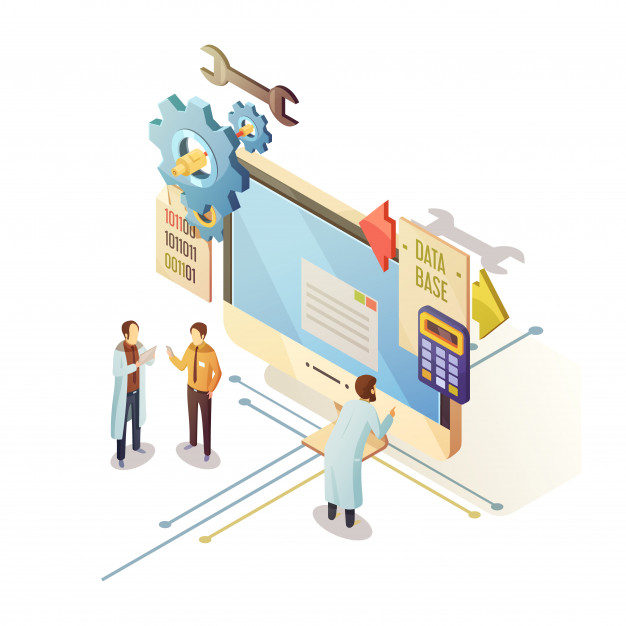Transforming Healthcare with Natural Language Processing (NLP)
3AI November 5, 2024

Featured Article
Author: Saurav Kumar, UnitedHealth Group
Introduction
Natural Language Processing (NLP) is a branch of artificial intelligence that focuses on the interaction between computers and humans through natural language. By enabling machines to understand, interpret, and respond to human language, NLP is revolutionizing various industries, including healthcare. In this blog, we will explore how NLP is transforming the healthcare sector, enhancing patient care, streamlining administrative processes, and driving significant advancements in medical research.
Enhancing Patient Care
One of the most profound impacts of NLP in healthcare is its ability to enhance patient care. Electronic Health Records (EHRs) are a rich source of patient data, but the unstructured nature of clinical notes, medical histories, and other text-based records poses a challenge. NLP algorithms can extract valuable information from these unstructured texts, providing healthcare professionals with critical insights.
For instance, NLP can identify and highlight important medical conditions, medications, and allergies from a patient’s history, ensuring that healthcare providers have a comprehensive view of the patient’s health. This capability is particularly useful in emergency situations where time is of the essence, enabling quicker and more accurate diagnosis and treatment.
Streamlining Administrative Processes
Administrative tasks in healthcare, such as coding, billing, and documentation, are often time-consuming and prone to errors. NLP can automate and streamline these processes, reducing the burden on healthcare providers and administrative staff. Automated coding systems powered by NLP can accurately assign medical codes to diagnoses and procedures, ensuring compliance with billing regulations and reducing the risk of claim denials.
Moreover, NLP can assist in managing patient records by automatically summarizing clinical notes and generating discharge summaries. This not only saves time for healthcare professionals but also enhances the accuracy and consistency of documentation.
Driving Medical Research
NLP is also playing a crucial role in advancing medical research. By analyzing vast amounts of medical literature, research papers, and clinical trial data, NLP algorithms can uncover patterns, identify trends, and generate new hypotheses. This accelerates the pace of medical discoveries and helps researchers stay abreast of the latest developments in their field.
For example, NLP can be used to mine clinical trial reports and identify potential adverse drug reactions, contributing to the development of safer medications. Additionally, sentiment analysis, a subset of NLP, can analyze patient reviews and feedback on treatments, providing valuable insights into patient experiences and treatment efficacy.
Case Study: NLP in Radiology
A notable application of NLP in healthcare is in the field of radiology. Radiology reports are typically detailed and descriptive, containing valuable information about a patient’s condition. NLP algorithms can process these reports to extract key findings, measurements, and diagnostic information, which can then be integrated into the patient’s EHR.
For instance, an NLP system can automatically detect mentions of specific conditions like tumors, fractures, or infections in radiology reports. This information can be used to generate alerts for follow-up actions or to populate structured fields in the EHR, making it easier for radiologists and other healthcare providers to access critical information quickly.
Challenges in NLP Implementation
Despite its many benefits, the implementation of NLP in healthcare is not without challenges. Ensuring the accuracy and reliability of NLP algorithms is paramount, especially in clinical settings where errors can have serious consequences. Developing algorithms that can understand the nuances and complexities of medical language, including abbreviations, synonyms, and context-specific meanings, is a significant technical hurdle.
Privacy and security are also major concerns, given the sensitive nature of healthcare data. NLP systems must comply with regulations like HIPAA (Health Insurance Portability and Accountability Act) to protect patient confidentiality. Ensuring robust data encryption and implementing strict access controls are essential steps to safeguard patient information.
Another challenge is the integration of NLP systems with existing healthcare IT infrastructure. Many healthcare organizations use a variety of legacy systems that may not be easily compatible with modern NLP tools. Creating seamless interfaces and ensuring interoperability between different systems can be a complex and resource-intensive process.
Advances in NLP Technology
The field of NLP is rapidly evolving, with significant advancements in machine learning and deep learning techniques driving improvements in performance and accuracy. Transformer models like BERT (Bidirectional Encoder Representations from Transformers) and GPT (Generative Pre-trained Transformer) have set new benchmarks in NLP capabilities, enabling more sophisticated language understanding and generation.
These advanced models can capture context more effectively, understand nuanced meanings, and handle a wide range of language tasks. In healthcare, transformer models can enhance the accuracy of medical information extraction, improve the quality of clinical documentation, and enable more precise predictions in medical research.
Integration with Other Technologies
Integrating NLP with other emerging technologies can further amplify its impact in healthcare. For example, combining NLP with computer vision can enhance the analysis of medical images and associated textual reports. By correlating image findings with textual descriptions, healthcare providers can gain a more comprehensive understanding of a patient’s condition.
Predictive analytics, powered by machine learning, can work in tandem with NLP to forecast patient outcomes, identify high-risk patients, and optimize treatment plans. By analyzing both structured data (e.g., lab results, vital signs) and unstructured data (e.g., clinical notes), predictive models can provide more accurate and actionable insights.
Future Directions
Looking ahead, the future of NLP in healthcare is promising. Continued advancements in deep learning and AI research will drive further improvements in the accuracy and efficiency of NLP systems. The development of domain-specific language models, trained on vast amounts of medical data, will enable more precise understanding and generation of medical language.
Moreover, the integration of NLP with real-time data streams from wearable devices and remote monitoring systems will open up new possibilities for patient care. Real-time analysis of patient-generated health data, combined with clinical records, can enable proactive interventions and personalized treatment plans.
As NLP technologies become more accessible and user-friendly, we can expect wider adoption across the healthcare industry. From large hospital systems to small clinics, healthcare providers will increasingly leverage NLP to enhance patient care, streamline operations, and drive innovation.
Conclusion
Natural Language Processing is transforming the healthcare industry by enhancing patient care, streamlining administrative processes, and driving medical research. As technology continues to evolve, the integration of NLP in healthcare will become increasingly sophisticated, leading to more efficient, accurate, and personalized medical care. By embracing these advancements, the healthcare sector can improve outcomes for patients and providers alike, paving the way for a healthier future.
The potential of NLP in healthcare is vast, and we are only beginning to scratch the surface of what is possible. As we continue to explore and innovate, NLP will undoubtedly play a central role in shaping the future of healthcare, bringing us closer to a world where technology and human expertise work hand in hand to deliver the best possible care.
Title picture: freepik.com






